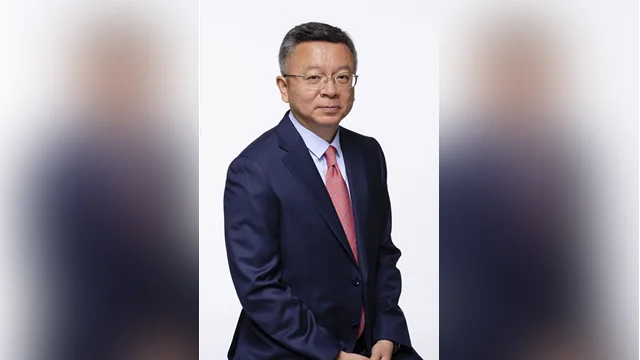The International Monetary Fund (IMF) Executive Board has completed the first review of São Tomé and Príncipe’s 40-month Extended Credit Facility (ECF) arrangement and concluded its 2025 Article IV Consultation with the country. This decision allows for an immediate disbursement of about SDR 3.964 million, approximately US$5 million, bringing total disbursements under the ECF to around US$10 million.
The ECF arrangement, approved in December 2024 with a total access equivalent to SDR 18.5 million, aims to support economic rebalancing and promote medium-term growth in São Tomé and Príncipe. The country faces structural challenges such as geographic remoteness, small size, vulnerability to climate risks, limited institutional capacity, a narrow export base, and ongoing labor force losses due to emigration.
Performance under the program has been satisfactory regarding quantitative targets; eight out of ten end-December 2024 performance criteria were met. The IMF Executive Board granted waivers for two missed criteria based on their minor and temporary nature and corrective actions taken by authorities. Structural reform implementation was delayed but included steps like enacting a new central bank organic law, finalizing draft financial institutions legislation, aligning domestic fuel prices with international benchmarks, and publishing key performance indicators from the electricity company EMAE.
The IMF also concluded its annual Article IV consultation with São Tomé and Príncipe. According to projections, GDP growth strengthened to 1.1 percent in 2024 and is expected to rise further in subsequent years—2.9 percent in 2025 and 4.7 percent in 2026—with robust medium-term prospects. Inflation has been falling steadily from a peak of 25 percent in January 2023 and is projected to reach 5 percent by end-2027. Fiscal deficits and current account imbalances have narrowed since 2022, a trend forecasted to continue alongside gradual increases in gross international reserves.
Despite being assessed as in debt distress due to unresolved external arrears, São Tomé and Príncipe’s debt remains sustainable.
Bo Li, Deputy Managing Director and Chair at the IMF, stated: “São Tomé and Príncipe’s economy is recovering from recent shocks, supported by an economic reform agenda under the Extended Credit Facility (ECF) arrangement. GDP growth has picked up, inflation is declining steadily, and the fiscal and current account positions have improved substantially. Notwithstanding, international reserves have remained at low levels, mainly reflecting lower-than-expected official development assistance. While the outlook is favorable, it is subject to considerable downside risks. The authorities remain focused on addressing macroeconomic imbalances, re-building reserve buffers, and supporting job-rich, inclusive growth.
“Several key structural reforms have been advanced, including the enactment of the central bank organic law, the finalization of the draft financial institutions law, and the alignment of domestic fuel prices with international market benchmarks.
“The authorities’ plans to formulate and implement a comprehensive domestic revenue mobilization strategy to support their ambitious fiscal consolidation targets are appropriate. They are also committed to maintaining a tight monetary policy stance until inflation falls below the target level, including by continuing to reduce excess reserves through the issuance of central bank certificates of deposit. In parallel, efforts to contain fiscal risks from the energy sector and put in place prudent borrowing and strengthened public debt management frameworks will be essential to preserve debt sustainability.
“The authorities are focused on strengthening governance frameworks, including by operationalizing the newly adopted central bank organic law, enacting the financial institutions and public procurement laws, and promoting greater transparency and accountability in public financial management.
“Accelerating the implementation of structural reforms is an imperative to enhance the export base and promote job-rich, inclusive growth. Important measures include addressing bottlenecks to private sector development and expanding air transport connectivity to stimulate tourism expansion. The authorities are also focused on enhancing resilience to climate-related shocks and accelerating initiatives that promote women’s economic empowerment.”
IMF Executive Directors noted progress made by São Tomé and Príncipe on internal/external imbalances while recognizing continued risks from commodity price fluctuations https://www.imf.org/en/Countries/STP , climate events or reduced development aid flows.
Directors emphasized continued commitment toward reforms for governance improvement as well as support for inclusive growth initiatives such as women’s economic empowerment programs or private sector development strategies—including improvements in infrastructure or human capital investment—and encouraged efforts toward fiscal consolidation through domestic revenue mobilization strategies or restructuring state-owned enterprises like EMAE.
Monetary policy tightening was welcomed as effective against inflation; swift adoption/implementation of pending financial oversight legislation was recommended alongside broadening access via national financial inclusion strategies.
Directors also called for strengthening resilience against climate shocks through tailored capacity development by both IMF staff/other partners while urging accelerated adoption of modern public finance management tools such as integrated information systems or updated procurement laws.
It is expected that future Article IV consultations will continue according to standard cycles for countries participating in Fund arrangements.

